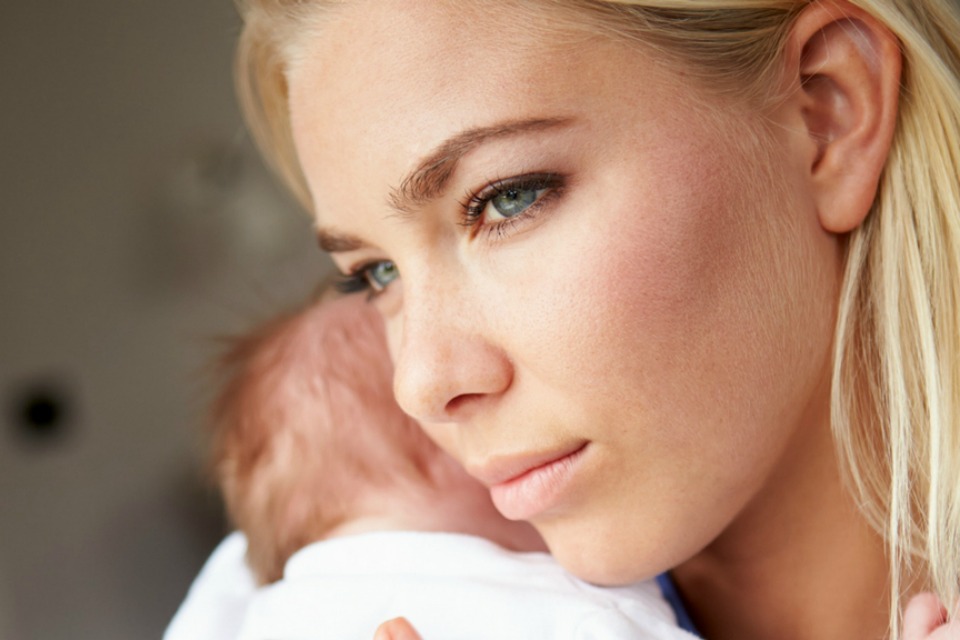Usually we’re too busy to note our associates is perhaps struggling postnatal despair, nevertheless it’s vital the signs as a result of left untreated or unidentified it may trigger mums to expertise ideas and behaviours that current a danger to her or her child.

May your good friend be affected by postnatal despair?
Postnatal despair (PND) isn’t a contemporary situation, again 50 years in the past it was known as a ‘nervous breakdown’ and sadly many ladies had been despatched to an asylum or hospitalised due to it.
It may be gentle, reasonable or extreme and signs can start all of the sudden after start or seem progressively within the weeks or months through the first yr after start.
Some mums get it after their first start, others after a 3rd or fifth supply. Usually it occurs with every child typically solely with one.
PND can occur after miscarriage or stillbirth, regular or traumatic supply, or caesarean supply, the one widespread issue is being pregnant.
What’s postnatal despair?

In accordance with the Black Canine Institute, postnatal despair (PND) describes the extra extreme or extended signs of despair that final greater than every week or two and intrude with the flexibility to operate every day with regular routines together with caring for a child.
Truth: You will need to notice that PND is totally different from the child blues which might be widespread through the first week after childbirth.
For round one-in-seven ladies, the stresses and emotional modifications that accompany their postnatal experiences might be intense and embrace sturdy depressive temper swings, nervousness, social withdrawal, irritability and lack of enjoyment in normal actions.
Postnatal issues can intrude with the creating relationship between a mom and her child after start (bonding and attachment) and impose strains upon the connection between the dad and mom in addition to inflicting misery for girls themselves.
Indicators your good friend or member of the family is perhaps affected by put up natal despair:
- They might now not take pleasure in actions they used to like similar to buying, going to the seashore or catching up for a espresso.
- You’ve observed their vanity and confidence ranges have plummeted.
- Their urge for food has gone they usually’ve misplaced numerous weight with out making an attempt.
- You’ve observed they’re having damaged sleep, no matter what their child is doing.
- They seem to have a way of hopelessness about all the things.
- Whenever you discuss they usually discuss being a failure as a mum or individual.
- You’ve observed they seem extra subdued in social conditions the place they could often thrive.
- They appear to be unusually panicky about conditions or have panic assaults.
- They’ve talked a couple of lack of libido.
- Whenever you chat they seem to have fears for his or her child’s or companion’s security or wellbeing.
Truth: Do you know there are two various kinds of PND and the signs fluctuate between the differing types and other people reply greatest to totally different remedy approaches?
1. Non-melancholic despair
The commonest type of PND and is linked extra with psychosocial danger components than genetic and organic causes.
These issues do not need organic or melancholic options although the despair can nonetheless be extreme. Any such despair is extra seemingly to answer psychological approaches to remedy though treatment can also be used when signs are extreme.
2. Melancholic despair
That is comparatively unusual, impacts solely 1-2 per cent of adults over their lifetime and often a extra extreme type of despair that has a extra distinct genetic and organic foundation.
Somebody who’s predisposed to melancholic despair may need an episode of despair triggered by a disturbing life occasion, for instance a demise within the household, however this isn’t often the first reason for their despair.
Melancholic despair responds greatest to medical remedy similar to antidepressant treatment, and is much less attentive to counselling or psychotherapy though the latter ought to complement medical therapies. Medical evaluation is required as such a PND not often goes away with out medical remedy.
If you’re experiencing any distressing signs which might be inflicting you concern, your physician, midwife, or baby and household well being nurse can offer you help or organize so that you can see a specialist.
You may name the PANDA Nationwide Helpline on 1300 726 306 between 9am and seven.30pm AEST or go to their web site right here.
Sources: www.blackdoginstitute.org.au and www.panda.org.au

With a whole bunch of 1000’s of mums from throughout Australia, all with the identical objectives, issues, and struggles, our group is there to help you thru all of it.
